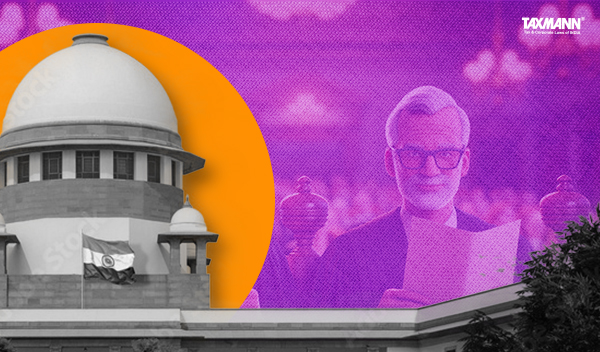Courts’ Power to Order Interim Compensation U/s 143A of NI Act is Discretionary and Applies Only to Cheque Drawer | HC
- Blog|News|FEMA & Banking|
- 2 Min Read
- By Taxmann
- |
- Last Updated on 4 June, 2024

Case Details: Prakash Vasant Ajgaonkar v. State NCT of Delhi - [2024] 163 taxmann.com 51 (HC - Delhi)
Judiciary and Counsel Details
- Navin Chawla, J.
- Aman Vachher, Dhiraj, Ashutosh Dubey, Ms Abhiti Vachher & Akshat Vachher, Advs. for the Petitioner.
- Ms Priyanka Dalal, Vikas Dutta & Shiva Sambyal, Advs. for the Respondent.
Facts of the Case
In the instant case, the company SVPL entered into an agreement with the complainant, under which the complainant was to purchase a built-up commercial and residential area for a total consideration of Rs.750 crores. The complainant paid an advance amount of Rs.187.50 Crores to SVPL in terms of the agreements.
Due to certain disputes that arose between parties, the complainant filed commercial suits before the High Court, inter alia seeking specific performance of agreement entered into between the parties. The said suit was disposed of in view of consent terms entered into inter alia between SVPL and the complainant.
In terms of Consent Terms, SVPL agreed to return back money invested with them by the complainant and issued post-dated cheques in terms of payment schedule. The complainant filed subject complaints u/s 138 of the Negotiable Instruments Act, 1881 before the Trial Court, complaining therein that cheques that were issued by the company on presentation were returned dishonoured with remarks “Fund Insufficient”.
In the said complaint, the petitioners were arrayed as accused, invoking section 141 of the Negotiable Instruments Act of 1881. The Trial Court disposed of the said application, directing the petitioners to pay 12%/10% of the cheque amount as interim compensation in terms of section 143A of the N.I. Act.
It was noted that the impugned order reflects that the Trial Court was of the opinion that section 143A was mandatory in nature and interim compensation had to be granted to the complainant in terms of the same as a rule and not as an exception.
This view of the Trial Court could not be upheld in view of the judgment of the Supreme Court in Rakesh Ranjan Shrivastava v. State of Jharkhand, 2024 SCC OnLine SC 309 wherein the Supreme Court had already clarified that exercise of power under Section 143A(1) is “discretionary.
High Court Held
The High Court observed that Section 143A of the N.I. Act empowered the Court to pass a direction for payment of interim compensation only against the “drawer of the cheque” and not other persons. In the instant case, admittedly, the drawer of cheques was the company and not the petitioners. However, the petitioners had been arrayed as accused of invoking section 141 of the N.I. Act.
The High Court held that the impugned order, having been premised on an incorrect appreciation of law and having ignored vital and relevant considerations for passing an order under Section 143A, could not be sustained and, thus, was to be set aside. Therefore, the instant petition was to be allowed.
List of Cases Reviewed
- Rakesh Ranjan Shrivastava v. State of Jharkhand, 2024 SCC OnLine SC 309 (para 18) followed.
- Lyka labs v. State of Maharastra (para 26) followed.
Disclaimer: The content/information published on the website is only for general information of the user and shall not be construed as legal advice. While the Taxmann has exercised reasonable efforts to ensure the veracity of information/content published, Taxmann shall be under no liability in any manner whatsoever for incorrect information, if any.



 CA | CS | CMA
CA | CS | CMA
